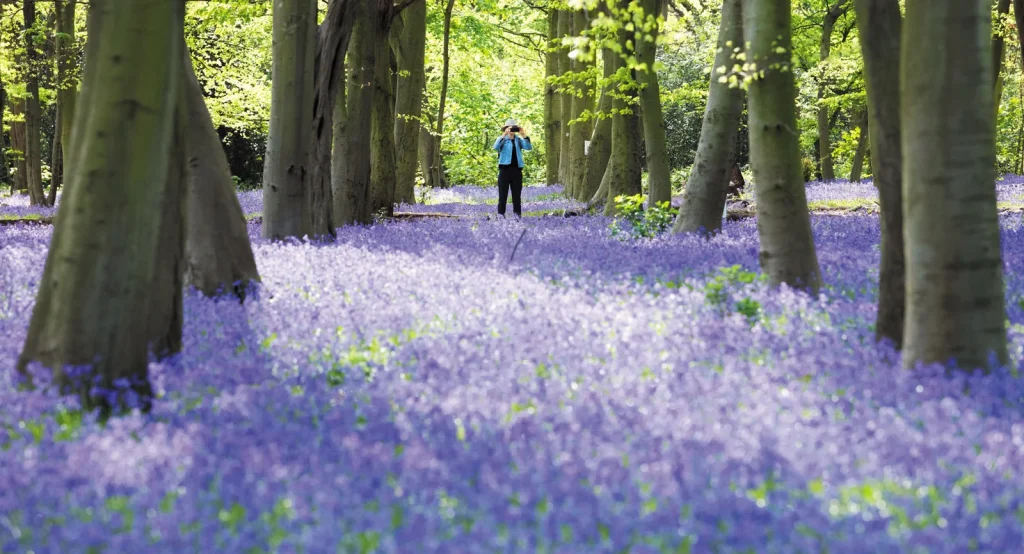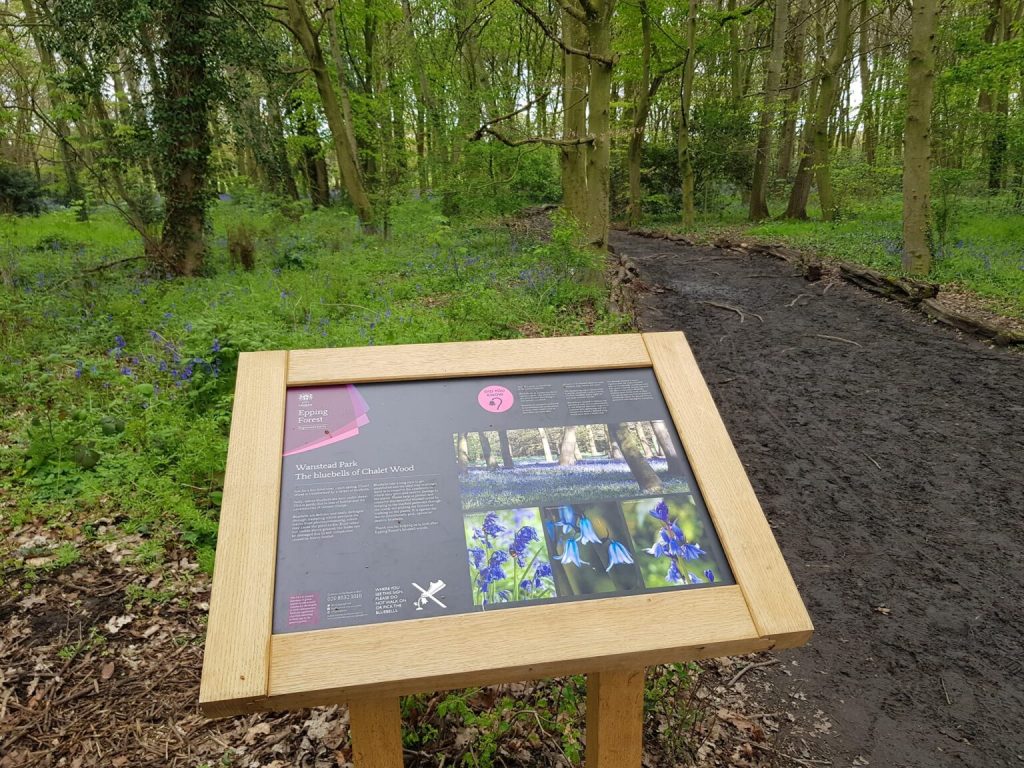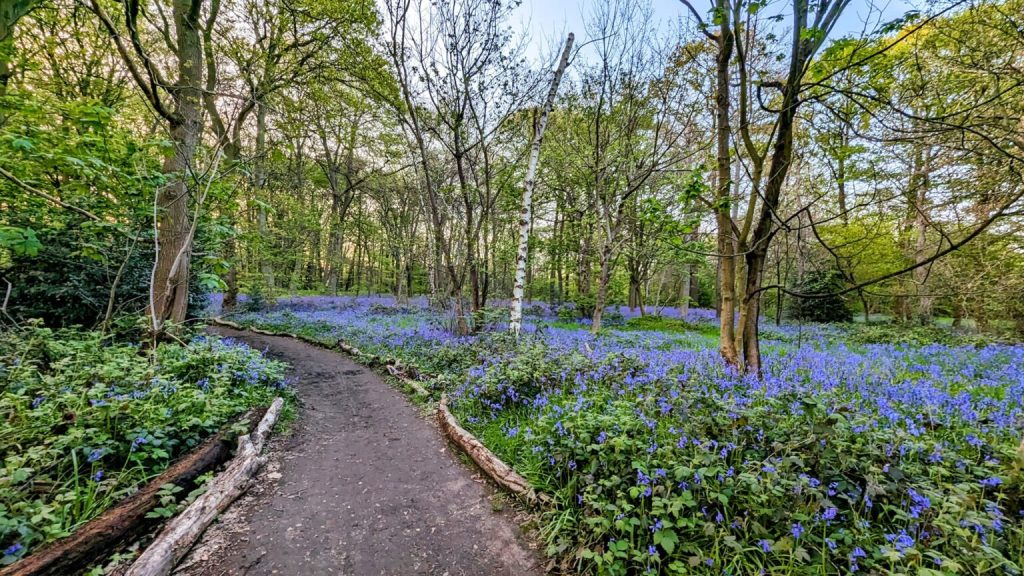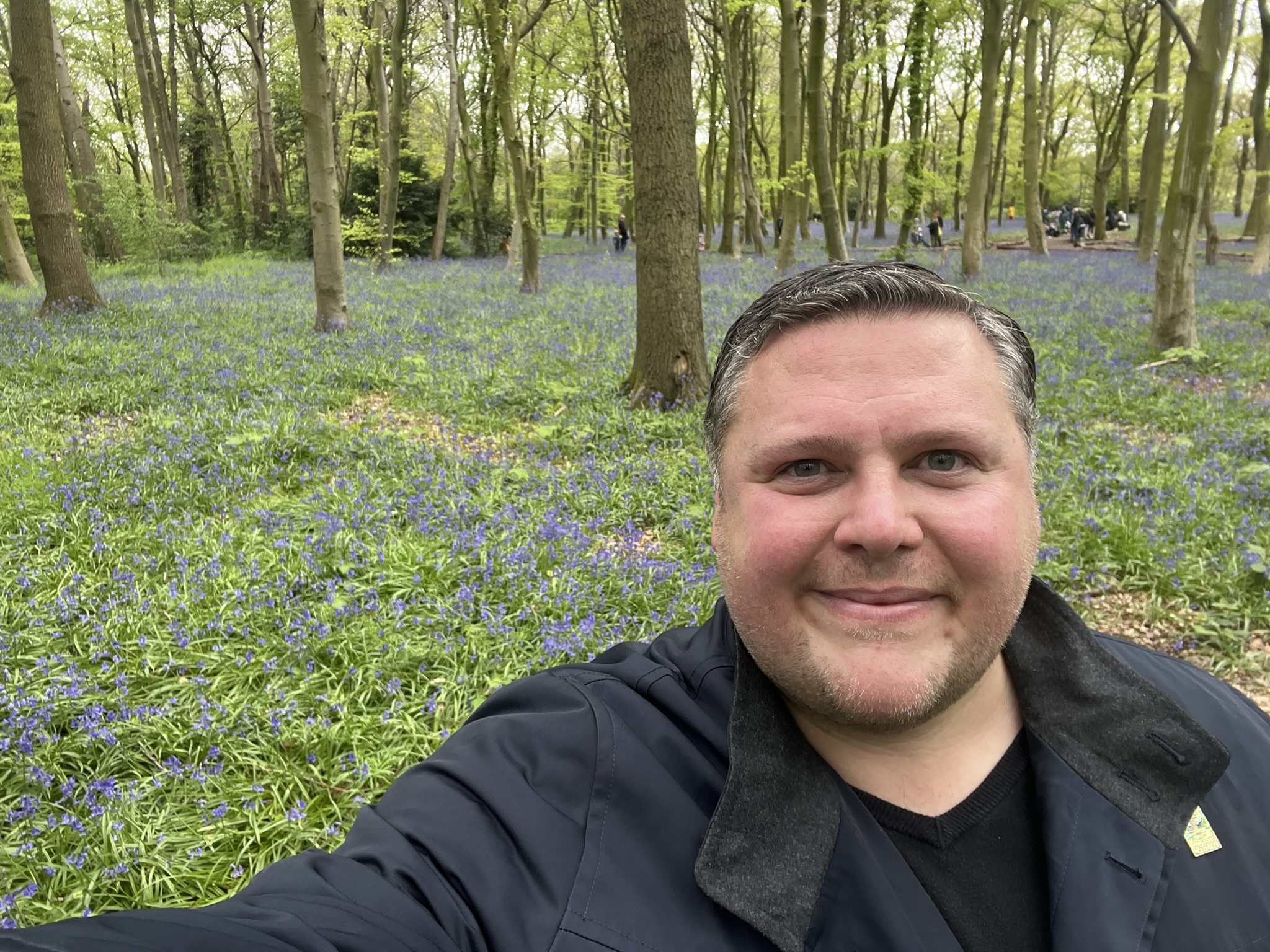Visitors to Epping Forest are being urged to help protect its iconic bluebells by sticking to designated paths and resisting the temptation to pick these delicate, native wildflowers.
For just a few fleeting weeks each spring, Chalet Wood in Wanstead Park – managed by the City of London Corporation as a registered charity as part of Epping Forest – becomes a breathtaking sea of bluebells, attracting thousands of visitors. But with this growing popularity comes an increasing risk to the very flowers people come to enjoy.
The UK is home to nearly half of the world’s bluebells, which are legally protected under the Wildlife and Countryside Act, 1981. It is against the law to intentionally pick, uproot or destroy bluebells.
Chairman of the City Corporation’s Epping Forest and Commons Committee, Ben Murphy, said:
“Bluebells are a spectacular sight and a vital part of the Forest’s ecosystem, supporting important pollinators such as bumblebees and butterflies. But they are incredibly fragile – just one footstep can crush their leaves, affecting their ability to photosynthesise and store energy for the following year.
“Even when they aren’t visible above ground, the bulbs remain vulnerable to damage. Bluebells take years to establish, so trampling them can have lasting consequences. That’s why we’re asking visitors to stay on the designated pathways in Chalet Wood and avoid picking bluebells anywhere in the Forest.
“This spring, we want people to enjoy the beauty of the Forest while also helping us protect it. Simple actions, like staying on paths, make a big difference in preserving this incredible display for future generations.
“So, do enjoy, but please don’t destroy.”
Epping Forest stretches from Manor Park in the south to Epping in the north, covering around 8,000 acres and attracting over 10 million visitors annually. It is one of the last remaining extensive natural woodlands in southern England and holds national and international conservation status as a Site of Special Scientific Interest and a Special Area of Conservation.
A report revealed that Epping Forest is worth around £64.4 million a year in public benefits, with a present value of £1.9 billion over 50 years, highlighting its immense ecological, recreational, and cultural value. Protecting habitats like the bluebell woodlands ensures the Forest continues to provide these benefits for years to come.
The City of London Corporation protects 11,000 acres of green space across London and the southeast, investing millions of pounds every year. Most of these sites are run as charitable trusts, at little or no cost to the communities they serve.
– ENDS –

Notes to editors
The City of London Corporation is the governing body of the Square Mile, dedicated to supporting a diverse and sustainable London within a globally successful UK – www.cityoflondon.gov.uk.
Chalet Wood in Wanstead Park is one of the most popular bluebell sites in Epping Forest, with designated pathways in place to protect the flowers.
Native English bluebells (Hyacinthoides non-scripta) take five to seven years to establish and are highly sensitive to foot traffic and disturbance.
The Wildlife and Countryside Act 1981 makes it illegal to intentionally pick, uproot or destroy bluebells.
Image caption: A carpet of native English Bluebells in Chalet Wood, Epping Forest (2004). Credit Yve Woodhouse, City of London Corporation.


